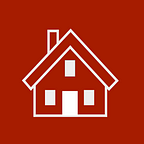Square Peg; Round Hole
Sarah Green, EdD Student
University of Calgary
Class had ended mere moments ago. The fan of the projector was still humming, cooling the contents of the term’s last lecture. As we shared fond farewells and gracious good lucks, the fourth-year students, who were counting down the moments until their real lives would begin, slowly funneled out of the classroom. All but one.
She sat there looking more ready for the beginning of class than the end: laptop open, well-loved notebook to the side, and pen in hand. She was a tableau of her own making. Her eyes fixated on the screen, which was now a stark white. An image frozen in time.
I approached her with a kind smile. In a cracked whisper, she said, “I know myself less than I did when I started four years ago,” her eyes still glued to the blank canvas of the screen. I couldn’t help but notice the weight of uncertainty in her posture, the burden of transition lingering in the air. It was as though time itself had paused to witness this moment of introspection. Her words hung heavy in the silence, resonating with a truth that many grapple with at the cusp of new beginnings. I could see the turmoil reflected in her eyes, the fear of the unknown mingling with the anticipation of what lies ahead.
With a soft sigh, I settled into the seat beside her, offering a silent gesture of solidarity.
“I can’t leave,” she said, her voice tinged with vulnerability. “I’ve applied to graduate schools all across the country to avoid confronting the unknown.”
“I hear you,” I said. I really did. And I still do.
Locking eyes with mine, she said, “I know nothing about being in the real world.”
As her confession hung in the air, I could sense the weight of her uncertainty. It was a familiar feeling, one that still lingers with me as I navigate my own journey through academia, ever illustrating the cyclical, mirror images of student and teacher.
“What you’re saying is deeply resonant,” I replied, my voice soft with empathy. “Leaving behind the familiar can be daunting. But sometimes, it’s in embracing the unknown that we truly begin to discover ourselves.”
As soon as the words fell out of my mouth, I questioned whether or not I believed them myself.
“But what if I’m not ready?” she asked, her voice trembling with insecurity.
I let the question linger for a moment, searching for words that would be unpretentiously truthful.
“None of us are ever truly ready,” I admitted, offering her a reassuring smile. “Therein lies the beauty of it all. Life has a way of pushing us outside of our comfort zones.”
We embraced the silence and made space for our exchange to land. In the stillness of the classroom, her fear was palpable. Standing on the precipice of change can have that effect.
She took a breath deep enough to benefit us both and said, “Maybe I’ll figure it out along the way.”
“Maybe you will,” I said.
We sat together a few minutes more; a few deep breaths more.
“Thank you,” she said insistently. “This is the most real conversation I’ve had in weeks.”
“Me, too,” I said. And I meant it.
Weeks have passed since this chance encounter; the image of this student etched in my mind. Her words play on a loop at the surface of my memory, and I can’t help but think how unfamiliarly familiar this story is.
I’ve heard variations on this story many times before, and yet, the open wound of a lack of confidence in facing the non-academic world is as raw as ever. Perpetuating a one-size-fits all approach that fails to accommodate the diverse needs and aspirations of learners, higher education has become conventionally comfortable. Complacency has become commonplace, and students are caught in the trap of a predetermined path rather than blazing their own. The disconnectedness between academia and reality is vast, leaving graduates adrift in a world that demands adaptability and resilience.
The path of the perpetual student, while unfathomable for some, is appealing for many. Comfort can be found in prolonging the inevitable, as temporary and debt-accruing as it may be. The catastrophic financial burden of continuing to stay can outweigh the paralyzing fear of what lies beyond the university walls.
There is a need for higher education to revisit and redefine its purpose so that it might extend beyond acquiring knowledge, carving out space for enlightenment, critical thinking, creativity, empathy, and resilience. This exploration requires a shift towards a more interdisciplinary and experiential approach to learning, one that encourages students to explore their passions and interests while also confronting non-academic challenges. In this exploration, there is a pivotal role for educators to serve not merely as disseminators of information, but as mentors and guides in the journey of self-discovery. Educators have a tremendous capacity to inspire students by facilitating discussions and fostering trust, which can, in turn, empower students to question conventional wisdom and blaze their own paths.
In confronting these systemic issues, the veil is lifted, revealing that the true value of higher education lies not in imparting knowledge but rather in its capacity to foster growth and self-discovery. The revelatory, paradigmatic shift in higher education, therefore, demands educators’ involvement with regards to recasting the purpose of higher learning institutions such that holistic development outshines academic achievements while at the same time giving learners autonomy over their own choices in the ever-evolving world.
As that pivotal, shared moment at the end of class continues to percolate, I am reminded of the ripple effect that is higher education. Learning transcends the confines of the classroom. It was my honour to be welcomed into such a self-aware confession. Student life is real life. I’m endlessly grateful for the student’s open-heartedness and commend her vulnerability. May we all be so brave.
